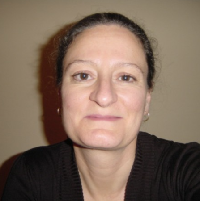Prof. Helena Nadais, University of Aveiro, Portugal
Biogrpahy: Helena Nadais is a Chemical Engineer and Assistant Professor at the University of Aveiro, specializing in environmental sciences with a particular focus on water and wastewater treatment processes. Her academic background includes a Master Degree in Chemical Engineering, specializing in Processes and Industry, from Lisbon Technical University and a PhD in Applied Environmental Sciences from the University of Aveiro. Her doctoral research pioneered new methodologies for treating industrial wastewater with an emphasis on energy recovery. Nadais has been a faculty member since 2003, teaching and doing extensive research in the treatment and valorization of water and industrial effluents. She is recognized for her scholarly contributions with an H-index of 19, and she has authored 38 publications in WoS-indexed journals. Her professional engagements include leading and participating in numerous national and international research projects, fostering industry-academia collaborations, and enhancing the application of sustainable practices in environmental management. Helena Nadais is currently involved as scientific researcher in four national and international research projects focusing on material and energy recovery from wastes.
Speech Title: Bioreactors for Sustainability: Microbial Communities Turning Microelectronics Effluents into Circular Opportunities
The microelectronics sector, fundamental to smart technologies and digital transitions, generates highly complex effluents rich in solvents, metals, and recalcitrant compounds. Their safe treatment is essential to minimize environmental impacts and to advance sustainable industrial development. In this keynote, we present insights from long-term anaerobic treatment experiments in semi-continuous bioreactors, designed to evaluate the acclimation of microbial communities to semiconductor wastewater. Over more than 130 days of operation, we monitored system performance through methanization efficiency, Chemical Oxygen Demand removal, and the stability of metabolic pathways, complemented by high-resolution microbial community analysis (16S rRNA gene sequencing). Results confirm the resilience of anaerobic biomass sourced from municipal wastewater treatment plants, demonstrating the capacity of microorganisms not only to adapt but also to biodegrade challenging effluent compositions, while producing renewable energy as biogas.
Beyond technical performance, this research underscores its contribution to the United Nations Sustainable Development Goals (notably SDG 6) by promoting access to clean water and effective wastewater management. By transforming industrial effluents into a resource stream—recovering energy, valorizing biomass, and reducing pollutant loads—the approach reflects the principles of the circular economy and offers a pathway to decarbonize and green high-tech industries. Monitoring microbial dynamics provides the scientific basis for optimizing biological processes, enabling more robust and tailored strategies for industrial wastewater treatment.
This work highlights how biotechnology and microbial ecology can converge to support sustainable industry practices, reduce dependence on fossil-based processes, and foster environmental protection. By closing loops in water and energy use, anaerobic bioreactors treating microelectronics wastewater stand as a compelling example of innovation at the service of sustainability.
.
Contact Us
Conference Secretary: Rachel Cao
Tel.: +86-13880104217(Working Hour: GMT 10:00AM-5:00PM)
Email: aceep_conf@126.com
